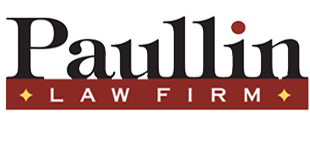29 Aug Defamation 101: Libel and Slander
Libel and slander are collectively known as defamation, or misrepresentation intended to harm the reputation of another person or entity. If a defamatory statement is written and seen, it falls under the category of libel. If the statement is spoken and heard (but not published in print), it is considered slander. As the recent explosion of channels for social media and online communication has opened new venues for the publication of libelous or slanderous statements, it is important to know the difference between the two, and to understand the components of a defamation lawsuit. In order to sue an individual or entity for libel or slander, a plaintiff must prove the following four claims to a court:
1. First, the plaintiff must prove that the defendant communicated a defamatory statement. Any message that results in an unwarranted loss of respect or confidence in the plaintiff is considered defamatory, as is any statement that causes derogatory, hostile or unfavorable opinions of the plaintiff. Based on these definitions, even a comment made in jest can be considered defamation if at least one person perceived it as serious.
2. Second, the plaintiff must show that the statement was published. According to defamation law,“publication” simply refers to the communication of a statement to someone other than the plaintiff. A defamatory statement does not have to be printed or broadcast by official media sources to be considered slander or libel; it can be spoken in conversation to an individual or group, or written in a personal email or letter.
3. Third, the plaintiff must prove that he or she was the subject of the statement, and that another party could identify him or her as such based on the information published. Some defamatory remarks identify their subjects by name, although those that omit names and identify individuals based on other information (such as position, title, personal attributes) are considered libel or slander as well as long as the plaintiff can show that others identified him or her as the subject.
4. Finally, the plaintiff must prove that the remarks made by the defendant were detrimental to his or her reputation. Any statement that accuses the plaintiff of committing a crime, of being professionally incompetent, or of “having a loathsome disease” is slanderous or libelous by nature; any other statement leaves the plaintiff with a burden to prove that the defendant’s words damaged his or her reputation.
Defenses to accusations of libel and slander include proof that the original statement was in fact true at the time of its publication; proof that the plaintiff consented to the publication of the information; and proof that the statement’s publication was purely accidental. Statements made by lawyers, witnesses, jurors or judges in the course of litigation are generally privileged (protected) from defamation suits, as they are made to serve justice and public policy. For more information on libel or slander or to request representation, contact the attorneys at Paullin Law Firm at 804-464-3765.



